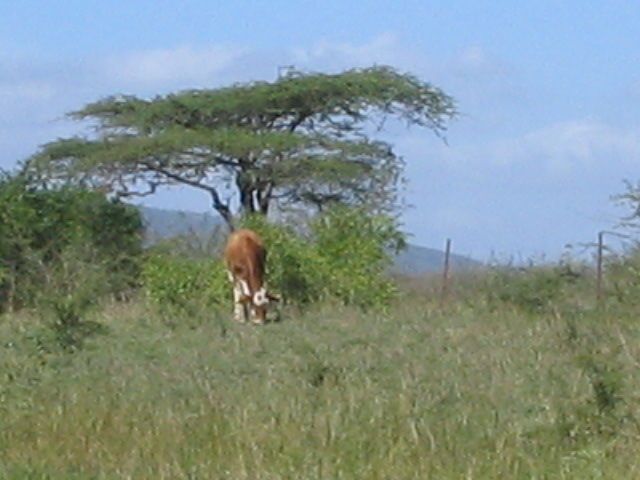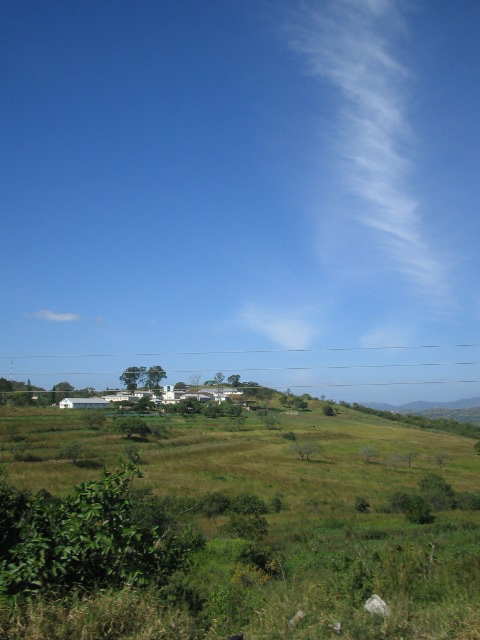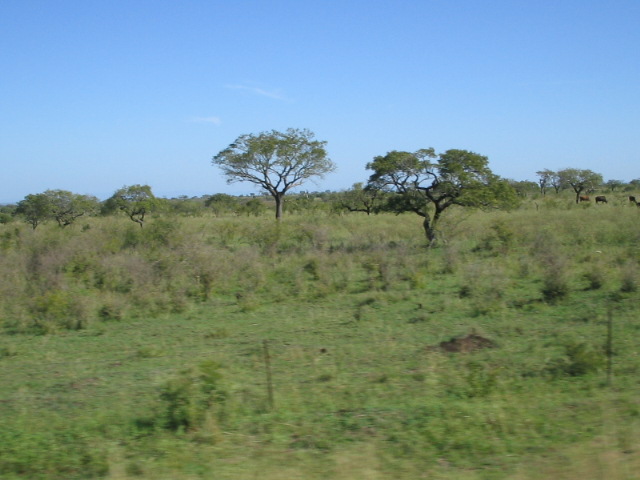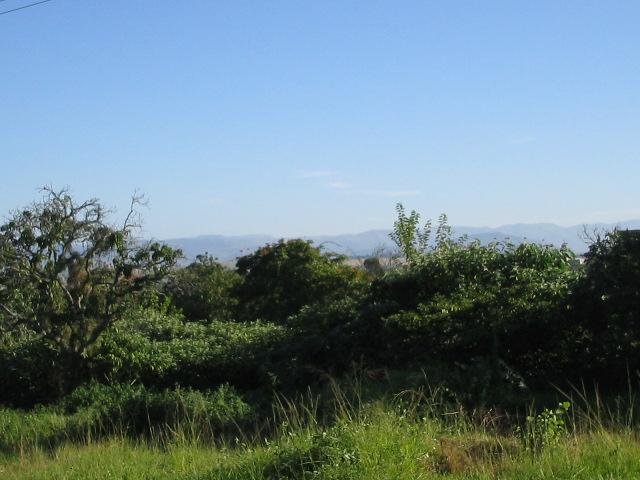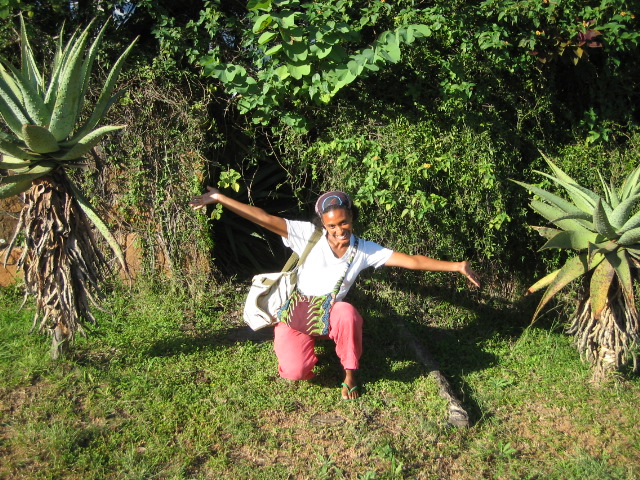Considering working or volunteering abroad? I spent a little over a month working as a volunteer teacher in Cape Coast, Ghana back in 2005. It was one of the best decisions I ever made!
Jobs in Ghana: How Volunteering as a Teacher in Ghana was One of the Best Decisions I Ever Made!
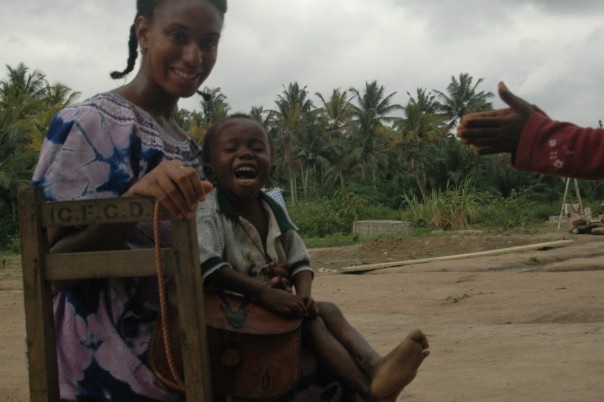
Eagerly, they jumped and wiggled in an assortment of miss-matched raggedy clothing. From where I was standing, by the front gate on the hill, I couldn’t distinguish the male children from the female ones. Ambiguously uniform, they sported short-cropped hair atop skinny boyish figures and faces lit immaculately with smiles.
So this is Ghana. My first impressions registered slowly. The red dusty earth, so fine, it coated everything with terra-cotta powder, the humidity, so intense it seemed I could drink the air, the continuous comforting aroma of burning wood, the constant presence of sweat beads above my upper lip, and now, effervescent children with half moon smiles.
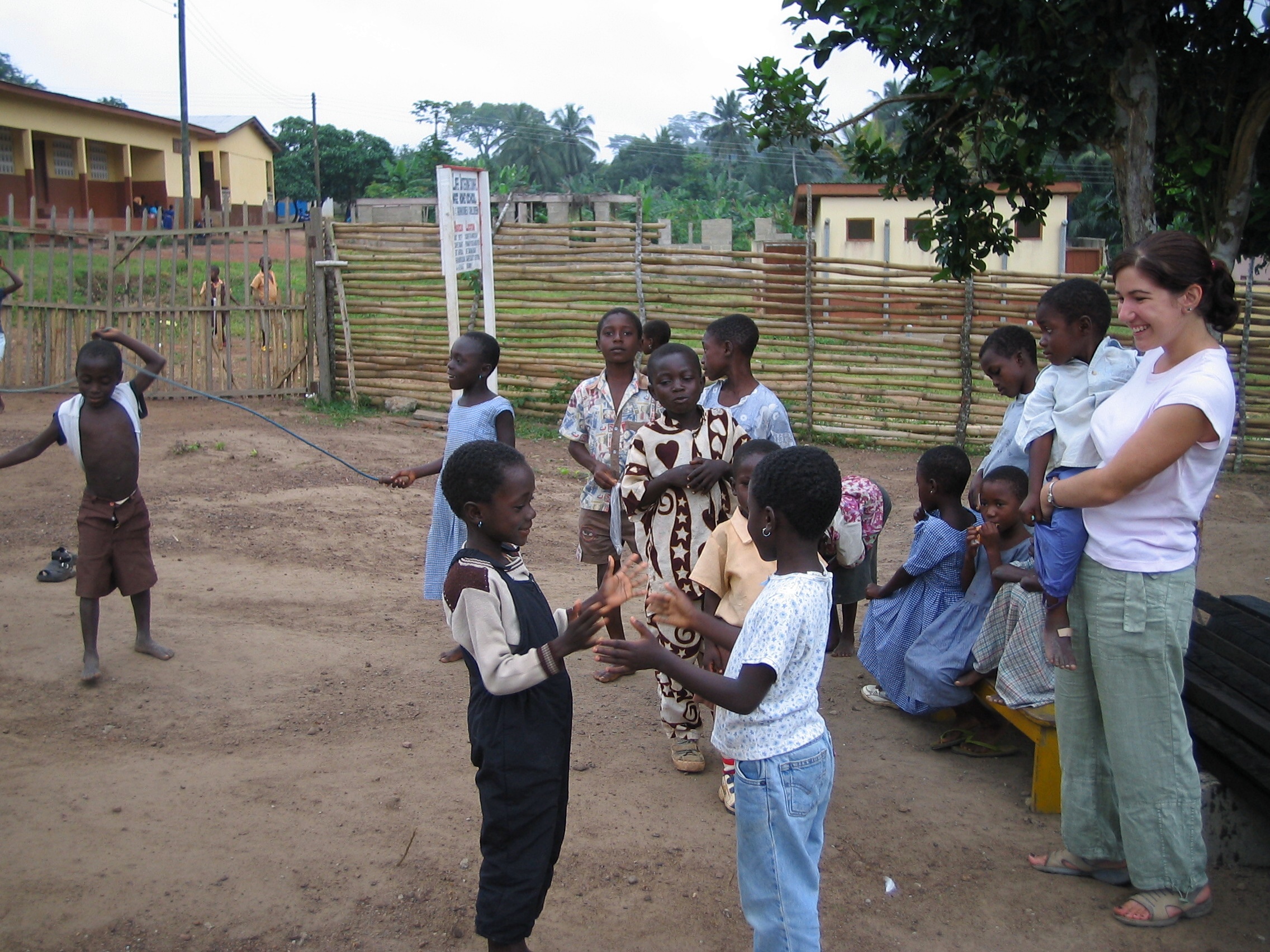
I stood in the yard of the New Life International Orphanage taking it all in. I had just finished my third year as a middle school English teacher and instead of spending the summer in the sweltering cement vacuum that is Manhattan where I would inevitably spend too much money and bounce aimlessly from beach to brunch as was the case the summer before, I chose to travel to Ghana and volunteer teach. It was time for me to do something greater than myself.
Always ready for an adventure, I traveled regularly, but I’d always played it safe. I had been to places like Canada, a handful of Caribbean Islands and many of the major cities in Europe. Africa, however, was a continent wrapped in mystery. Intrigued since childhood, Africa had been calling my name for quite some time. I did my research and decided that Ghana would be the country to introduce me to the continent. Ghana was full of history, there was a thriving arts scene, the country boasted a diverse landscape, the main language was English and being the first African country to gain colonial independence, the political climate was very stable.
I chose a placement in the Cape Coast region because I wanted to be near the water. I opted to work at an orphanage instead of a school to get a different teaching experience. The orphanage, located in a rural suburb on the outskirts of town was modest at best. A singular, flat, un-painted, concrete structure with an open courtyard, it was home to twenty children roughly aged between one and thirteen. Many of the children had living parents who could no longer afford to take care of them. Some of these parents visited weekly and helped out where they could. Under funded, under-staffed, and under-resourced, the orphanage relied on volunteers for everything.
During the school year a local teacher essentially volunteered his time to work with the students. Over the summer, the facility relied on international volunteers to fill in the gaps. There were many gaps, as Madam Grace, the elderly headmistress and her staff of two had their hands full.
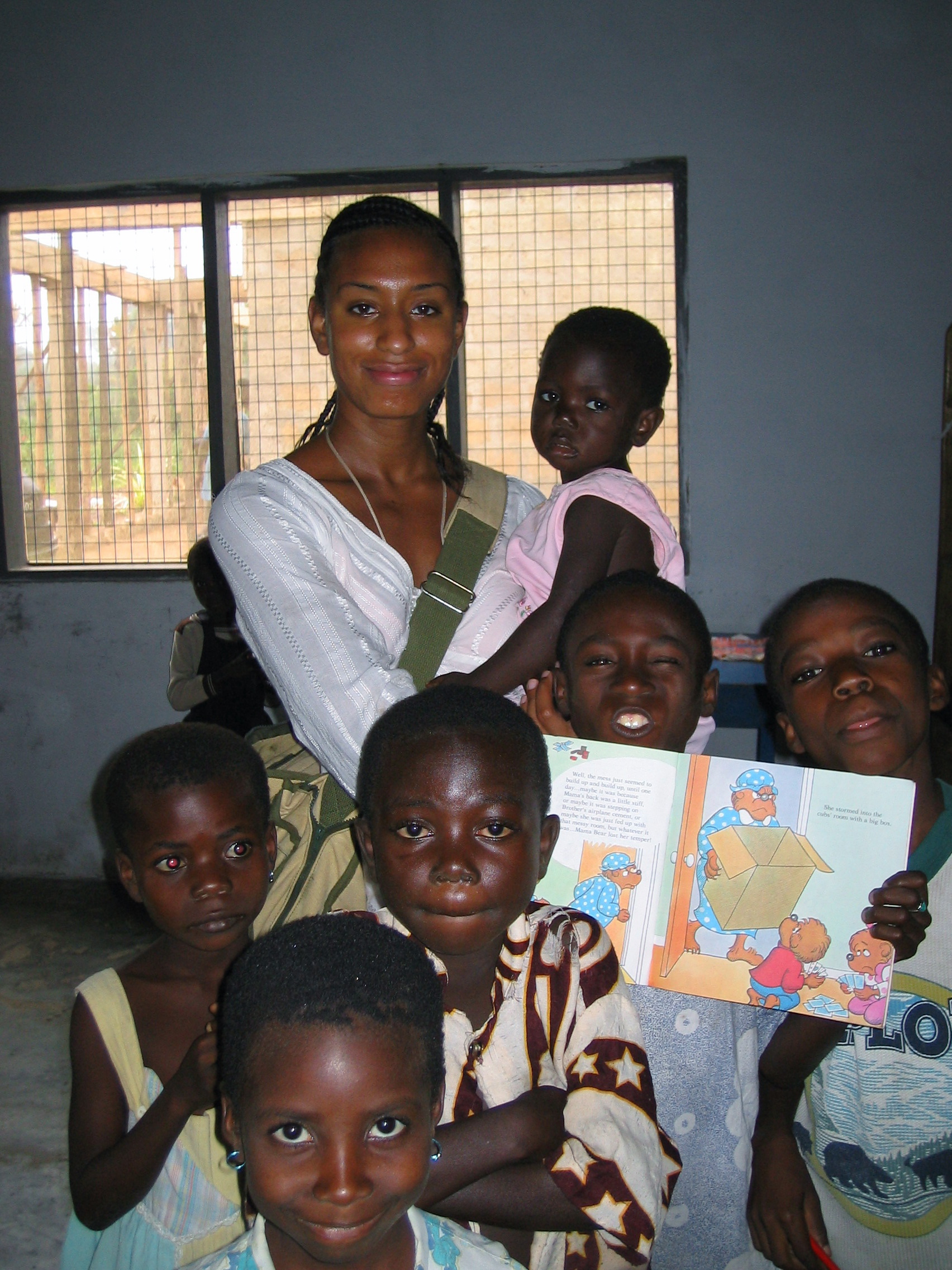
One of three volunteers this summer, I took over the care of the primary group. My students ranged in age from one to three. Irresistibly adorable and affectionate, I happily adopted this group. Because I had the youngest section and because there was only one classroom that the mid and upper grades split, my group spent lesson time outside beneath the shade of a very large tree.
My little ones, six in all, were feisty and enthusiastic. Having worked primarily with teenagers, it took a while to adjust to children that small. Every direction had to be broken down into tiny digestible pieces. We jumped around constantly, getting our wiggles out, re-focusing short attention spans. Despite English being the official language of Ghana, my students learned to speak Fante, the local language before English. Only a few of my toddlers could communicate in and understand English. One little girl named Gifty, who had just turned one, wasn’t speaking yet at all.
I arrived ready to teach. I mapped out lessons. I scoured the central market for books and supplies. But, as is typically the case in education, academic lessons were only a small part of the ever growing list of critical needs facing my tiny pupils. I was often overwhelmed by the enormity of their situations. The children needed proper nutrition, their daily tin bowl of cassava porridge and rice was filling but devoid of nutrients. Dressed quite literally in an array of colorful rags and shredded clothes that were too big, they needed proper and clean clothing. They also needed a proper educational foundation in their native Fante, a language I didn’t know, and they needed love and attention.
It was difficult to accept the fact that as one person, an outsider, with limited linguistic and cultural contexts from which to operate, I had no control over the fulfillment of all of their needs. I swallowed daily doses of guilt and frustration until I learned to focus on the things I thought I could instead control.
I was a teacher, I may not have known Fante and my young students may not have been fluent in English yet but we learned our ABCs and counted beneath the shade of the willowy shea tree using a stick to mark the red earth, our impromptu chalk-board. I became a master of improvisation. Tracing shapes in the moist earth we learned vocabulary words and made up stories.
A child on each hip and several hanging off of my legs we danced and swayed, singing songs and playing hand games. Leaves and sticks were collected and used as building blocks. We created good times and shared many wonderful moments. Moments like the time Judith, a shy two year old, put together her first broken sentence in English, “No. Me up. Take me up.” She demanded one afternoon arms outstretched. Or when Lisbeth, a bow-legged three year old, finally caught someone during our daily game of tag. The mischievous look on her face - priceless.
Slowly we fell into a routine, circle time, game time, lesson time, song and dance time. Despite the orphanage being a bleak place, there was so much life radiating from the little ones. The children seemed genuinely happy finding joy in the simple moments and in each other instead of in things. It was humbling to be in their presence. If I found myself complaining about the fact that my sandals were always filthy and covered in red dirt, I needed only to look at my barefoot students to feel gratitude. If I felt the urge to complain about being ripped-off at the central market, I needed only to think of my students and their reality, about the fact that if people were earning a livable wage, they wouldn’t need to rip tourists off. If families could take their earnings from the marketplace home and adequately feed and cloth their children, they wouldn’t need to place them in orphanages so that they could be fed and get a basic education.
“I want. I want. I want Benny. I want Benny to come and dance with me.” They would sing. Clapping as the named child performed a dance to the beat. “O how fun. Oh how fun. Oh how fun to come and dance with me.” The chorus continued until everyone was consumed with contagious laughter. They laughed despite having no toys, or a mom and dad to care for them, or the security of a comfortable bed and three nutritious meals a day. They seemed to giggle and smile simply because they were alive, and for the time being together, and feeling well.
Then our little routine was disrupted. From the beginning I noticed that mosquitoes were ravaging the children. They would come out at night, long after Kathy and Jamie (the other two volunteers) and I had left for the day and by morning, when I arrived to teach, the little ones would be painted in raised red dots. As the months transitioned from July to August, I transitioned from teacher to nurse.
Having hypochondriac tendencies, I brought a massive first aid kit with me from New York just in case. Never did I imagine the important role this kit would play.
It began with the scratching. Visibly wiggly and uncomfortable, the children scratched their little legs and ankles until they were covered in sores. This was made worse by the absence of shoes, and running water. Impossible to protect or keep clean, the sores began to get infected. My kit went to work with me daily. I set up a nurse’s station on the corner of the sunken wrap around porch. Every few hours, I was disinfecting, applying Neosporin and changing bandages. Despite my efforts however, things got much worse.
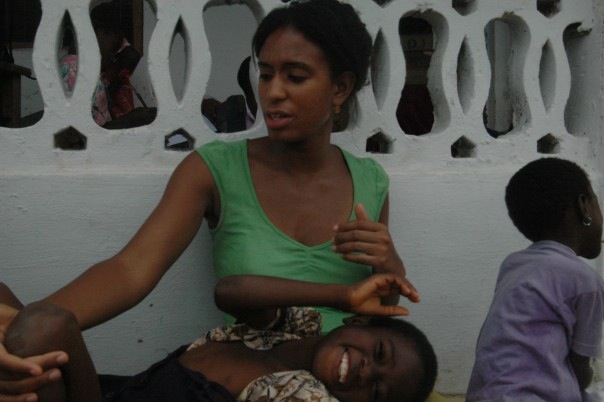
In my primary group there was a little boy named Jack. Jack had the largest most pensive brown eyes I’d ever seen. Jack’s sores were also refusing to heal. Raised and raw, they began to ooze and puss. Jack grew lethargic and cranky. He no longer joined in the group games opting instead to curl up next to me at my makeshift nurses station. Days went by and it became clear that the situation was critical.
“I have no money for a doctor. Transport is expensive. Medicine is expensive.” Madame Grace explained looking worried and defeated.
Jamie, Kathy and I offered to pool our money together to pay for the services and were granted reluctant permission to transport Jack into the city to the hospital to be seen by a doctor.
The doctor, an American woman from California was very sympathetic. She’d seen cases like this before. She tested Jacks blood for infections and parasites then drained, cleaned, and dressed his wounds. The doctor gave me a crash course in dressing wounds and donated a box of medical supplies to the orphanage.
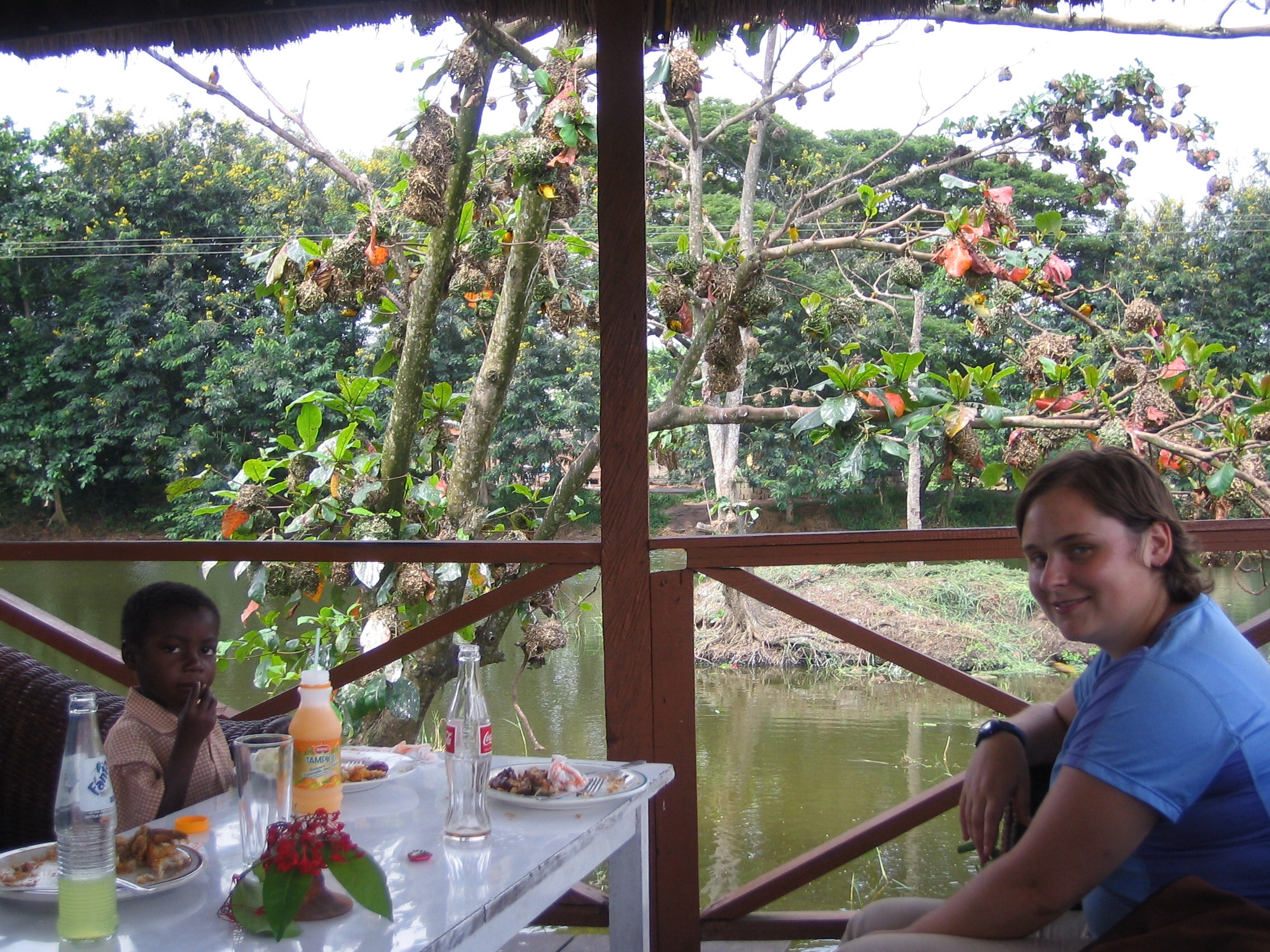
After treating Jack to lunch in town, for being such a good boy we returned to the hospital for the results. He had a staph infection, the worst-case scenario. He needed anti-biotics and several follow-up visits. Prescriptions were filled and we returned to the orphanage with the news.
The next day two other children came down with similar symptoms. Their wounds refused to heal. Jamie and I brought them to the hospital where they too were diagnosed with staph infections. Two more children fell ill after that and my new schedule of shuttling children to doctor appointments began.
The yard was no longer filled with laughter and activity. Lessons no longer took place. The orphanage had temporarily been turned into an infirmary. Even one of the adult staff members, the cook, fell ill.
I did what I could and filled in where I was needed. Sometimes that meant giving a bath, other times rocking a crying toddler or showing some of the older children how to dress wounds. After two weeks of uncertainly, we were clear of staph infections.
By late August a full chorus of “One elephant came out to play, upon a spider’s web one day. He had such tremendous fun that he called for the other elephants to come” could be heard all afternoon long. The verses would repeat as the number of elephants grew and until the yard was full of the children swinging their arms in front of their noses like elephant trunks.
My summer volunteer experience as a primary teacher had not gone quite as planned. My students didn’t learn to speak English or count. They couldn’t all recite their ABC’s on cue. Many of my planned lessons went un-taught. My summer in Ghana was about so much more than simply exploring a mysterious new country while volunteering at an orphanage. I had been shaken. The way I approached the moments in my life had been altered. My neurotic, impatient, controlled, New Yorker tendencies subsided a bit making room for a much more appreciative, balanced and patient person. A person capable of improvisation and going beyond the call of duty in order to advocate for a group of children whose voices and needs were rarely validated or addressed. I had become stronger, braver somehow.
Being in Ghana was so exquisitely different from anything I had ever done. From working at the orphanage to touring the Cape Coast Castle, to visiting the rain forest canopies further inland, to living with a host family, to traveling to a traditional stilt village and forming lifelong friendships with some amazing locals and passionate volunteers, I had changed.
When I think of Ghana, I remember the red earth, the humidity, and the savory smell of burning wood but most importantly I feel the spirit of the children I was so fortunate to have spent time with.
From them, I learned that its better to smile through pain, through obstacles and hardship than it is to scowl and frown. I learned to sing and clap my hands and to appreciate the little things, life’s finer moments.
Like little Buddha’s, they lived impeccably in the present, drinking the most from each second with the wise knowledge, far beyond there years, that tomorrow was not promised and there would be no way to control what it might bring.
*This piece was originally written in 2012 for an anthology of essays about volunteer tourism



